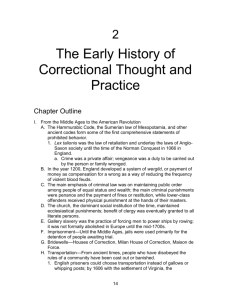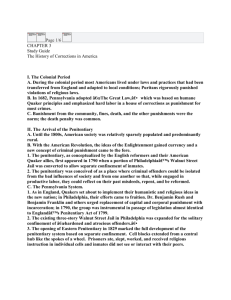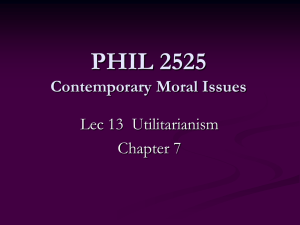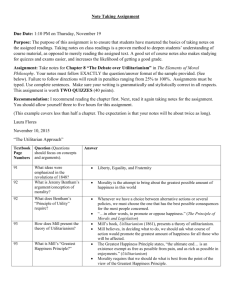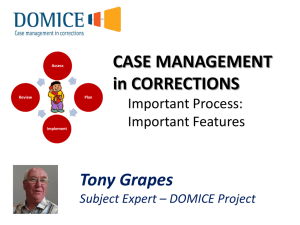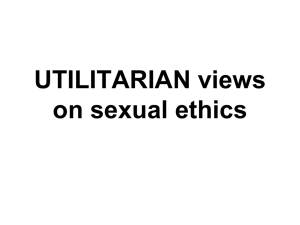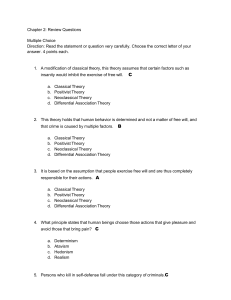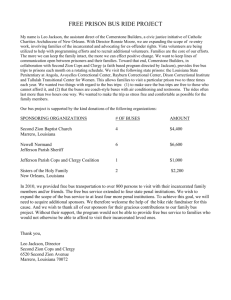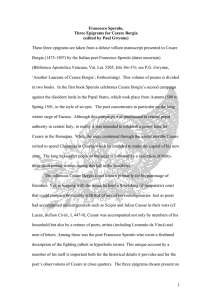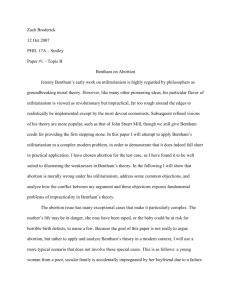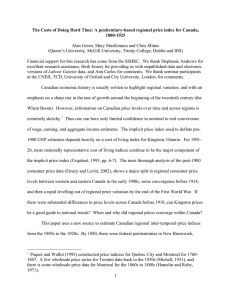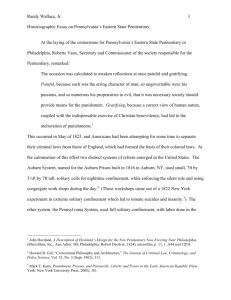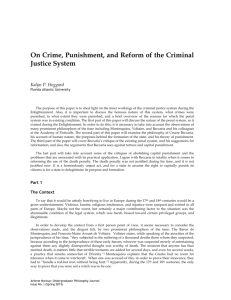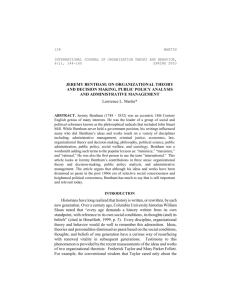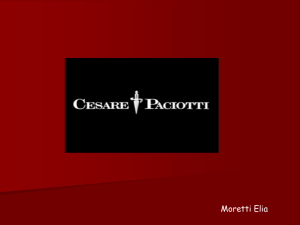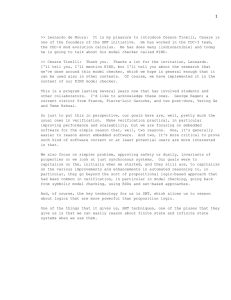JS104
advertisement
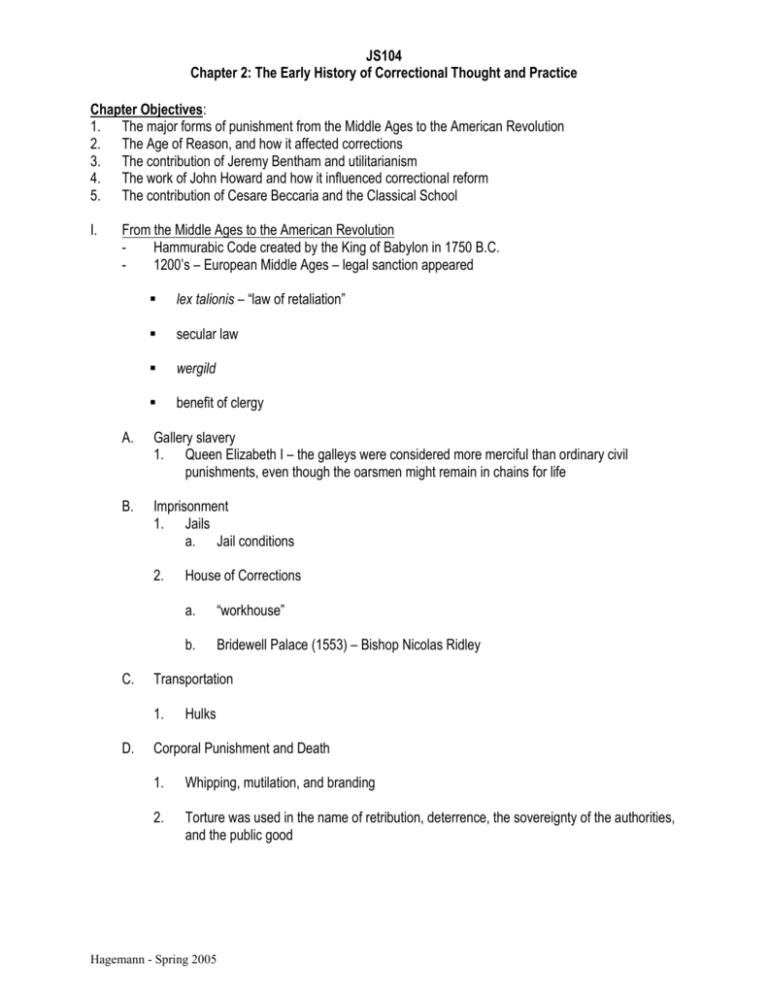
JS104 Chapter 2: The Early History of Correctional Thought and Practice Chapter Objectives: 1. The major forms of punishment from the Middle Ages to the American Revolution 2. The Age of Reason, and how it affected corrections 3. The contribution of Jeremy Bentham and utilitarianism 4. The work of John Howard and how it influenced correctional reform 5. The contribution of Cesare Beccaria and the Classical School I. From the Middle Ages to the American Revolution Hammurabic Code created by the King of Babylon in 1750 B.C. 1200’s – European Middle Ages – legal sanction appeared lex talionis – “law of retaliation” secular law wergild benefit of clergy A. Gallery slavery 1. Queen Elizabeth I – the galleys were considered more merciful than ordinary civil punishments, even though the oarsmen might remain in chains for life B. Imprisonment 1. Jails a. Jail conditions 2. C. a. “workhouse” b. Bridewell Palace (1553) – Bishop Nicolas Ridley Transportation 1. D. House of Corrections Hulks Corporal Punishment and Death 1. Whipping, mutilation, and branding 2. Torture was used in the name of retribution, deterrence, the sovereignty of the authorities, and the public good Hagemann - Spring 2005 II. III. On the Eve of Reform A. Social and economic factors reshaped the penal sanctions, particularly concerning labor B. Other important influences stemmed from altered political relationships and changes in the power of the church and the organization of secular authority The Age of Reason and Correctional Reform A. The Enlightenment (The Age of Reason) 1. Liberalism, rationality, equality, and individualism dominated social and political thinking B. Cesare Beccaria and the Classical School C. Jeremy Bentham and the “Hedonic Calculus” 1. D. Utilitarianism John Howard and the Birth of the Penitentiary 1. The State of the Prisons in England and Wales 2. The Penitentiary Act of 1779 a. secure and sanitary structure b. systematic inspection c. abolition of fees d. a reformatory regimen lex talionis benefit of clergy galley slavery transportation corporal punishment penology house of corrections Hedonistic Calculus utilitarianism Penitentiary Act of 1779 Cesare Beccaria Classical School Hagemann - Spring 2005 Key Terms wergild secular law jail imprisonment penitentiary Hammurabic Code The Enlightenment hulks Panoptican John Howard Jeremy Bentham
